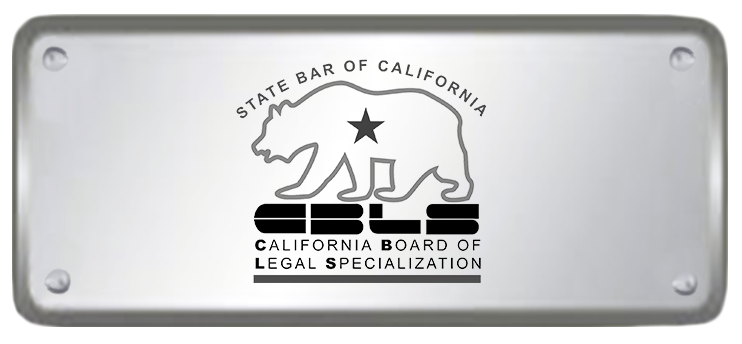ATTORNEY FEES IN A CALIFORNIA DIVORCE
In California, the amount and payment terms of attorney fees in a family law or divorce case are based upon the provisions of the fee agreement between the client and attorney. Family law and divorce cases in California are typically billed on an hourly basis, while some attorneys offer fixed-fee representation. Contingency billing, or payment from the proceeds of a family law or divorce case, is not permitted in California. However, limited exceptions related to collecting past-due child support do exist. It is the public policy of California that both parties to a family law or divorce case have equal access to legal counsel if economically feasible. If there is a disparity in income and assets, one party may be ordered to pay some or all, of the attorney fees of the other party.
How Are Attorney Fees Awarded in a Family Law or Divorce Case?
To receive an order for attorney fees payable by the other party to the litigation, a motion must be filed with the court that puts forth this request. The motion requesting attorney fees must comply with the technical requirements enumerated by the California Family Code and the California Rules of Court. Most importantly, it must include a current and complete Income and Expense Declaration. The court will consider many factors when determining if a motion requesting attorney fees should be granted, including:
1. TYPE:
Attorney fees are available in California family law and divorce cases based upon different provisions of the California Family Code. In a divorce, need-based attorney fees are available to the litigants. In a paternity action, need-based attorney fees are available to the litigants under a different California Family Code Provision. Attorney fees are available to the prevailing party in a Domestic Violence Restraining Order proceeding, following the same need and ability standard as in divorce or paternity proceedings. There are also other attorney fees available that are based on more specific issues.
2. NEED:
Need for attorney fees must be pleaded and demonstrated through admissible evidence. Need is a relative standard and does not simply mean a party has no financial resources. Rather, it is a combination of the financial resources of a party in consideration of the financial resources of the other party. Sometimes a party may have more than enough financial resources to pay for their own attorney fees but will still request and receive attorney fees from the other party who has even greater financial resources.
3. ABILITY:
Ability to pay attorney fees is a factual determination by the court based on a party’s income, assets, debts, and other relevant considerations. The court has broad discretion when making or denying a request for attorney fees, including the ability to order a payment plan for any awarded attorney fees. The court may also look to various funding sources, including community property assets and make an order for payment of attorney fees subject to a later allocation of the obligation to the parties.
4. REASONABLENESS:
Reasonableness of the attorney fees requested is within the discretion of the court to determine and is inherently subjective. For this reason, it is paramount for a party requesting attorney fees in a family law or divorce case to properly present their request by complying with all required forms and presenting other admissible evidence bearing upon the request. This includes a presentation of past attorney fees that have been paid or billed and anticipated prospective attorney fees.
Are Monetary Sanctions Different Than Attorney Fees?
Yes and no. Monetary sanctions in a family law or divorce case are based upon attorney fees and costs that are expended by an aggrieved party in response to action or inaction of the other party that frustrates settlement or causes unnecessary litigation. Attorney fees in a family law or divorce case are primarily based upon need, ability, and reasonableness, so there is no requirement that sanctionable conduct be present. That said, it is common for a party opposing a request to pay attorney fees, to argue that the other party has generated unreasonable attorney fees, oftentimes through sanctions-worthy conduct. Also, if a party is opposing a request for attorney fees makes a request for monetary sanctions from the other party, the court may properly offset any attorney fees order with an order for monetary sanctions.
At Antonyan Miranda, we aggressively advocate for your interests, using all available legal tools and strategies to help secure everything important to you: family, finances, and assets. Attorney fees are vital to comprehensive representation and yet are a relatively complex area of law. Call us at 619-696-1100 to speak with one of our Concierge attorneys, or visit us at www.expertdivorcelaw.com for more information.
FOLLOW US!
ATTORNEY FEES IN A CALIFORNIA DIVORCE
In California, the amount and payment terms of attorney fees in a family law or divorce case are based upon the provisions of the fee agreement between the client and attorney. Family law and divorce cases in California are typically billed on an hourly basis, while some attorneys offer fixed-fee representation. Contingency billing, or payment from the proceeds of a family law or divorce case, is not permitted in California. However, limited exceptions related to collecting past-due child support do exist. It is the public policy of California that both parties to a family law or divorce case have equal access to legal counsel if economically feasible. If there is a disparity in income and assets, one party may be ordered to pay some or all, of the attorney fees of the other party.
How Are Attorney Fees Awarded in a Family Law or Divorce Case?
To receive an order for attorney fees payable by the other party to the litigation, a motion must be filed with the court that puts forth this request. The motion requesting attorney fees must comply with the technical requirements enumerated by the California Family Code and the California Rules of Court. Most importantly, it must include a current and complete Income and Expense Declaration. The court will consider many factors when determining if a motion requesting attorney fees should be granted, including:
1. TYPE:
Attorney fees are available in California family law and divorce cases based upon different provisions of the California Family Code. In a divorce, need-based attorney fees are available to the litigants. In a paternity action, need-based attorney fees are available to the litigants under a different California Family Code Provision. Attorney fees are available to the prevailing party in a Domestic Violence Restraining Order proceeding, following the same need and ability standard as in divorce or paternity proceedings. There are also other attorney fees available that are based on more specific issues.
2. NEED:
Need for attorney fees must be pleaded and demonstrated through admissible evidence. Need is a relative standard and does not simply mean a party has no financial resources. Rather, it is a combination of the financial resources of a party in consideration of the financial resources of the other party. Sometimes a party may have more than enough financial resources to pay for their own attorney fees but will still request and receive attorney fees from the other party who has even greater financial resources.
3. ABILITY:
Ability to pay attorney fees is a factual determination by the court based on a party’s income, assets, debts, and other relevant considerations. The court has broad discretion when making or denying a request for attorney fees, including the ability to order a payment plan for any awarded attorney fees. The court may also look to various funding sources, including community property assets and make an order for payment of attorney fees subject to a later allocation of the obligation to the parties.
4. REASONABLENESS:
Reasonableness of the attorney fees requested is within the discretion of the court to determine and is inherently subjective. For this reason, it is paramount for a party requesting attorney fees in a family law or divorce case to properly present their request by complying with all required forms and presenting other admissible evidence bearing upon the request. This includes a presentation of past attorney fees that have been paid or billed and anticipated prospective attorney fees.
Are Monetary Sanctions Different Than Attorney Fees?
Yes and no. Monetary sanctions in a family law or divorce case are based upon attorney fees and costs that are expended by an aggrieved party in response to action or inaction of the other party that frustrates settlement or causes unnecessary litigation. Attorney fees in a family law or divorce case are primarily based upon need, ability, and reasonableness, so there is no requirement that sanctionable conduct be present. That said, it is common for a party opposing a request to pay attorney fees, to argue that the other party has generated unreasonable attorney fees, oftentimes through sanctions-worthy conduct. Also, if a party is opposing a request for attorney fees makes a request for monetary sanctions from the other party, the court may properly offset any attorney fees order with an order for monetary sanctions.
At Antonyan Miranda, we aggressively advocate for your interests, using all available legal tools and strategies to help secure everything important to you: family, finances, and assets. Attorney fees are vital to comprehensive representation and yet are a relatively complex area of law. Call us at 619-696-1100 to speak with one of our Concierge attorneys, or visit us at www.expertdivorcelaw.com for more information.





















